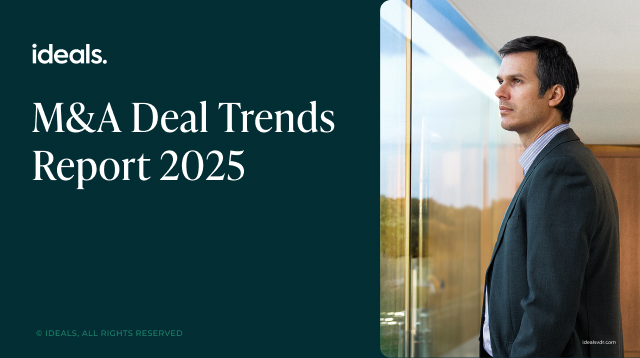Technology investment banking offers a unique career path at the intersection of innovation and finance. It’s a field where analysts quickly gain exposure to fast-growing companies, competitive deal processes, and global markets.
I spoke with Ranul Edirrisinghe, a Vice President at William Blair, about his start in investment banking and how he came to specialize in technology firms. He shared his perspective on the evolving M&A landscape and how trends like sustainability, ESG, and AI are reshaping dealmaking.
Q: Can you tell me about your current role?
I am a Vice President at William Blair’s Global Technology M&A team. Having started as an analyst at Blair’s San Francisco office in 2018, I relocated to London in 2019.
At Blair, my M&A experience has largely been focused within the B2B software space, and in particular the GRC (governance, risk, and compliance) vertical.
Q: What made you move from San Francisco to London?
I loved my time in San Francisco and the move was largely due to visa requirements. When my US work visa expired, Blair offered me a spot at our European offices. Since our European Technology M&A team is based in London, it was the natural destination for me.
During my time in London, we have grown our European technology M&A team from ~10 people to a team of ~30 people. Over that time, the scale and quality of transactions we’ve been involved in have also improved. Last summer, we sold AMCS to EQT, which is our largest M&A transaction for our European Technology franchise to date.
It wasn’t planned, but being part of the European technology franchise’s growth in London has been fantastic.
Q: How did you come to focus on tech and software deals?
As an analyst, I started out as a generalist within Blair’s Technology group, working on transactions across different sectors, including software, IT services, and FinTech. As I progressed through the ranks, my deal experience naturally gravitated me towards the software sector and the GRC vertical.
It started with my involvement in the sale of Quentic, a Berlin-based environment, health, and safety (EHS) software company, to AMCS in 2022. That led to me working on Apax’s take-private of EcoOnline later that year, and Evotix’s sale to STG in 2023 (both also EHS software companies), before the sale of AMCS to EQT last summer.
While it wasn’t a conscious decision to specialize in GRC at the onset, my sector alignment has evolved naturally through deal experience.
Q: Was your education geared toward business and finance?
I grew up in Sri Lanka and completed qualifications in business, economics, and math. I then attended the University of California at Berkeley where I finished a two-year Liberal Arts program and a two-year business degree at the Haas School of Business.
Many investment banks recruit heavily from Berkeley, and my friends on campus spoke highly of their banking experiences. This motivated me to apply to Blair.
Q: Besides your academic background, what helped you break into the industry?
It may sound cliché, but networking is key. Reaching out to professionals before applying for internships or jobs makes a huge difference.
There are so many qualified candidates applying for open positions, which makes it very difficult to get a foot in the door by solely relying on your resumé and grades. Talking to people early on and building relationships is the best way to create opportunities.
Q: What’s been your most memorable deal so far?
The sale of AMCS to EQT last summer stands out. Based in Limerick, Ireland, AMCS is a global leader in performance and sustainability software for resource-intensive industries.
It felt great to be representing a client whose solutions were empowering their customers to achieve their sustainability goals and navigate the complexities of the circular economy.
Q: Are those kinds of deals with real-world impact the ones you find most interesting?
I’m definitely drawn to technology companies that deliver meaningful environmental or social impact. Companies with an impact angle often also attract interest from broader pools of capital.
For example, the AMCS deal was co-led by EQT’s Tech buyout and Impact funds. That kind of dual capital pool involvement is becoming more common across our sell-side processes.
Q: Is ESG still a driver of valuations and investor interest?
That’s an interesting question. “ESG” can sometimes feel like an overhyped, catch-all buzzword, and given the political climate we’re in, we’ve started to see companies rebrand away from ESG and towards themes of resilience and sustainability.
Across both the US and Europe, we’ve also started to see some rolling back of ESG requirements (e.g. the EU’s Omnibus legislation) create complexities for businesses centered around ESG reporting.
That said, there’s still strong investor appetite for companies leveraging ESG and sustainability data to deliver real operational improvements. We saw this in our involvement advising General Atlantic’s climate growth fund (BeyondNetZero) on its minority investment in Wireless Logic, an IoT connectivity provider delivering data transparency, operational efficiency, and cost reductions for customers to accelerate long-term energy efficiency.
Q: What’s the current M&A environment like for exits and investments, and how do you see it shaping up through 2025?
Despite the ongoing geopolitical turbulence, it’s been a busy year and we’ve continued to see transactions get completed at great prices across our processes. That theme is consistent across public markets as well, where you can see the S&P and NASDAQ at all-time highs.
While summers tend to be slower in Europe, the US market remains very active, and I expect 2025 to finish as another strong year.
Q: With the market moving so fast, are you using AI or other tech tools to keep up?
On the client side, nearly every technology business we work with is leveraging AI, whether it’s using AI in their internal operations to drive efficiency improvements or to enhance their value proposition for customers.
Banks tend to be more conservative when it comes to adopting new technology, however we’re already using AI to handle more manual tasks such as document redaction and to support our prospecting efforts.
In general, it feels like the industry is still in its early days of AI adoption, but there’s no question that its influence on dealmaking will continue to increase over the coming years.





